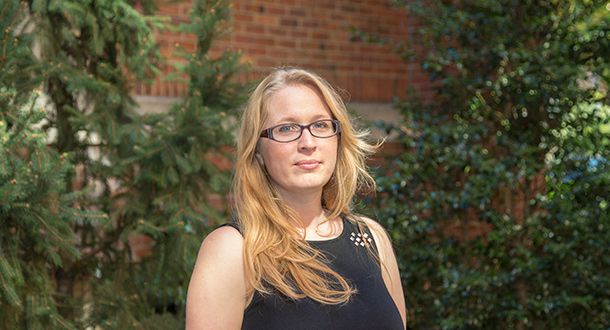Emerging Leader Spotlight: Alexandra Nassau-Brownstone, Somerset Development Company
We know that affordable housing can be used as a platform for helping low-income families to move up and out of poverty, but Alexandra Nassau-Brownstone, Director of Resident Services for Somerset Development Company, also works to use housing as a platform to reach residents in need of essential services.
Nassau-Brownstone has directed Somerset Development’s resident services program since 2009. She creates holistic on-site resident service programming – including systems for financial and outcomes tracking and measurement – and works to build community partnerships for the organization. As a developer, Somerset has invested more than $429 million in Washington, D.C. and Baltimore by creating retail spaces, new community buildings and more than 1,750 affordable residential apartments in the cities.
At the program level, Somerset believes resident services are part of the property management team. This dynamic works to create a healthier, happier and more stable housing community.
What’s the biggest challenge in your industry, and how have you addressed it?
The greatest challenge in the industry continues to be sustainable funding. At Somerset we’ve been successful in pairing a limited budget that comes from a percentage of the property’s cash flow with resources that partners can bring on-site. However, this model really works if there are partners in the community that are funded to work at our sites. For the most part, we’ve been fortunate to work with properties that are in resource rich neighborhoods – meaning full of organizations and agencies that are able to help our residents. However, not every neighborhood has that same level of services, or access to services, and without those resources communities suffer.
One way to help address this is better collaboration and communication with city agencies. Healthcare and social service funds could be used to help build housing-based resident services programs. It’s essential city agencies work together to collaborate and create mechanisms for funding services that reach residents.
What’s the one piece of advice you wish you had gotten sooner?
It’s essential to slow down and talk with those you are serving. We get caught up in what the funders are looking for or what the next deadline is or with what we believe the bigger vision of our work to be, and the voices of those we’re serving gets drowned out.
It’s a simple thing, but really listening to someone is how to connect with them. This is the greatest inspiration and the only way to build trust. And trust is the first step towards a successful community program.
How has being a member of HAND helped you with your community development efforts?
HAND’s forum for exchange and learning has been a wonderful resource over the years. It has provided a platform for peer exchanges on accessing healthy food, the earned income tax credit and free tax preparation, outcome measurement and funding. These are important training opportunities for our onsite coordinators and resident service practitioners.
Additionally, we also appreciate HAND’s commitment to, and celebration of, resident services. We have been the beneficiaries of HAND’s summer intern program which really helped us to ensure a strong summer program for our youth. Also, we were thrilled to celebrate HAND’s recognition of one of our Hubbard Place youth for her artwork depicting “home” at the last HAND annual event.
Click here for more information on Somerset Development Company.







The premise that resident services create and support successful tenancy that, in turn, benefit both the property and owner has been an article of faith in the non profit community. Seeing for-profit owners like Somerset, and others, make this investment in peoples lives, makes this a business proposition as well as a value statement. And that is critical to the longterm growth of this movement.